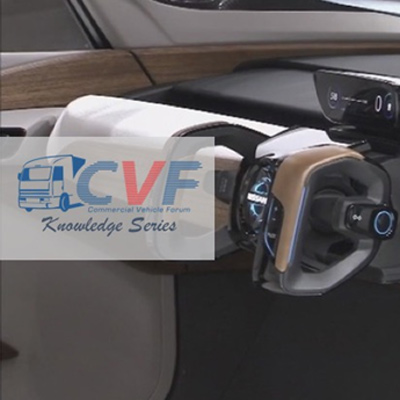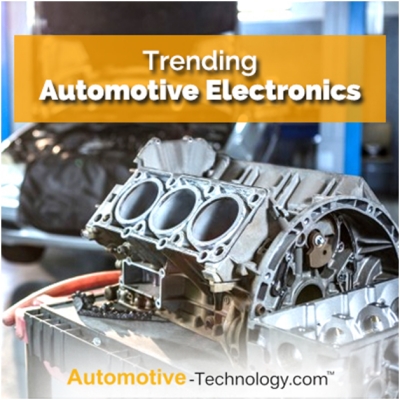Electric Vehicles in the Luxury Automotive Segment: Market Trends and Consumer Preferences

Introduction:
The automotive industry is currently undergoing a significant transformation, particularly in the luxury segment, due to the emergence of electric vehicles (EVs). This shift is driven by several interconnected factors. Firstly, there's a growing global concern about environmental sustainability, leading consumers, including luxury car buyers, to seek eco-friendly transportation options. Secondly, rapid advancements in electric vehicle technology, including improvements in battery efficiency, range, and charging infrastructure, have made EVs more viable and attractive to a broader consumer base. Lastly, there's a notable shift in consumer preferences towards advanced features, connectivity, and premium driving experiences, aligning well with the characteristics offered by luxury EVs.
A. Market Trends in Electric Luxury Vehicles:
Growing Demand: The demand for electric luxury vehicles has been steadily increasing as consumers become more environmentally conscious and prioritize sustainability in their purchasing decisions. This trend is driven by a combination of factors, including concerns about climate change, regulatory pressures for cleaner transportation, and the desire for innovative, future-proofed vehicles.
Increased Competition: The influx of major automakers into the electric luxury vehicle market has intensified competition, leading to a wider range of options for consumers. This competition is beneficial as it fosters innovation, drives down costs, and encourages automakers to differentiate their offerings through unique features and value propositions.
Technological Advancements: The rapid pace of technological advancements in electric vehicle technology has significantly enhanced the performance, range, and overall appeal of luxury EVs. Breakthroughs in battery chemistry, electric drivetrains, and software optimization have addressed previous limitations, such as range anxiety, and have made electric vehicles more practical and desirable for luxury car buyers.
Regulatory Environment: Stringent emissions regulations and government incentives aimed at promoting electric vehicles have played a crucial role in shaping the market for electric luxury vehicles. Automakers are compelled to invest in electrification to meet regulatory requirements and capitalize on incentives, driving the expansion of electric vehicle offerings in the luxury segment.
B. Consumer Preferences in Electric Luxury Vehicles:
Sustainability: The sustainability factor is a significant driver for consumers choosing electric luxury vehicles. Luxury car buyers often prioritize environmentally friendly options, and electric vehicles offer a clear advantage in terms of lower emissions and reduced environmental impact compared to traditional internal combustion engine vehicles.
Performance: Contrary to the perception that electric vehicles sacrifice performance for efficiency, luxury EVs are renowned for their exceptional performance characteristics. The instant torque delivery, smooth acceleration, and quiet operation of electric motors appeal to performance-oriented consumers who seek a thrilling driving experience without compromising on luxury.
Advanced Technology: Luxury electric vehicles are at the forefront of technological innovation, offering a plethora of advanced features and connectivity options. Autonomous driving capabilities, high-resolution infotainment systems, seamless integration with smartphones, and over-the-air updates are examples of technology-driven features that attract tech-savvy luxury car buyers.
Range and Charging Infrastructure: Range anxiety is a common concern among electric vehicle buyers, especially in the luxury segment where long-distance travel is prevalent. Automakers have addressed this concern by improving the range capabilities of EVs and expanding the charging infrastructure with fast-charging networks, making electric luxury vehicles more practical for everyday use.
Design and Exclusivity: Luxury electric vehicles often boast distinctive designs, premium materials, and exclusive branding that resonate with consumers seeking prestige and exclusivity. Customization options, limited-edition models, and unique styling cues contribute to the allure of luxury EVs, appealing to discerning buyers who value individuality and craftsmanship.
C. Branding and Marketing Strategies in Electric Luxury Vehicles:
Brand Identity: Luxury electric vehicles often leverage brand identity to appeal to discerning consumers. Established luxury automakers emphasize their heritage, craftsmanship, and attention to detail, positioning their electric vehicles as extensions of their brand values. This creates a sense of exclusivity and prestige among buyers.
Environmental Messaging: Marketing campaigns for electric luxury vehicles often emphasize their environmental benefits. Messaging around sustainability, zero emissions, and eco-conscious design resonates with consumers who prioritize environmental stewardship. Brands showcase their commitment to sustainability through innovative technologies and green initiatives.
Lifestyle Integration: Luxury electric vehicle brands integrate their products into aspirational lifestyles. Marketing materials often depict EVs as part of a sophisticated, modern lifestyle, showcasing how these vehicles complement high-end living, travel, and leisure activities. This lifestyle integration appeals to affluent consumers seeking a seamless blend of luxury and sustainability.
Performance and Innovation: Marketing efforts highlight the performance capabilities and technological innovations of electric luxury vehicles. Features such as advanced driver-assistance systems, cutting-edge infotainment, and seamless connectivity with smart devices are showcased to emphasize the vehicle's state-of-the-art capabilities. Performance metrics, such as acceleration times and range, are also highlighted to attract performance-oriented buyers.
Experiential Marketing: Luxury automakers use experiential marketing strategies to engage potential buyers. Test drives, exclusive events, and personalized experiences allow consumers to interact with electric luxury vehicles firsthand, fostering emotional connections and brand loyalty. These immersive experiences highlight the unique selling points of EVs, from their quiet, smooth driving experience to their advanced technology features.
Partnerships and Collaborations: Collaborations with high-profile brands, influencers, and industry leaders are common in the marketing of electric luxury vehicles. Strategic partnerships help amplify brand visibility, reach new audiences, and position EVs as lifestyle accessories coveted by trendsetters and opinion leaders. These collaborations reinforce the aspirational nature of luxury electric vehicles.
By exploring these aspects of branding and marketing strategies in the context of electric luxury vehicles, you can provide a comprehensive view of how automakers create and communicate value to their target audience, shaping consumer perceptions and driving demand in the competitive luxury automotive market.
Conclusion:
The convergence of environmental consciousness, technological innovation, regulatory imperatives, and evolving consumer preferences has propelled the electric luxury vehicle market into prominence. As automakers continue to invest in electrification and advance the capabilities of luxury EVs, the market is poised for further growth and diversification, offering consumers an enticing array of sustainable, high-performance, and technologically advanced luxury vehicles.



